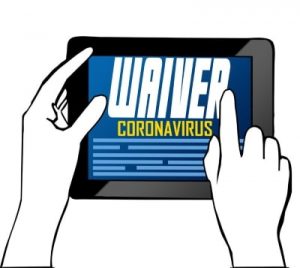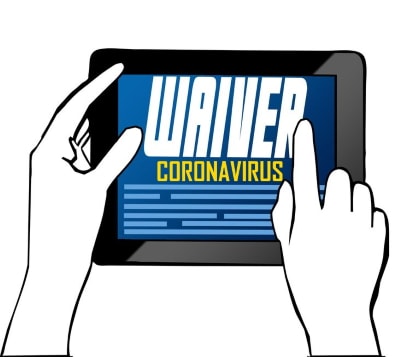 Should your business require customers and employees to sign a coronavirus waiver, release of liability, and assumption of risk agreement before being allowed to enter your premises?
Should your business require customers and employees to sign a coronavirus waiver, release of liability, and assumption of risk agreement before being allowed to enter your premises?
Unfortunately, we live in a world where someone looking to make a fast buck will find an ambulance-chasing attorney to sue your business if there’s a good chance of getting paid by you or your insurance company.
There are already lawsuits by employees of retail stores claiming their employers exposed them to the virus by failing to provide personal protective equipment (PPE), failing to limit contact between customers and employees (e.g. plexiglass barriers at checkout), or requiring employees to show up to work at all instead of closing the business due to the pandemic.
It’s only a matter of time before some customers try to win litigation lotto by suing businesses for coronavirus exposure too. From a legal standpoint, a coronavirus waiver can reduce liability exposure. If someone sued your company alleging you had infected them with COVID-19, their signature on a properly drafted waiver, release of liability, and assumption of risk agreement would create a big obstacle to winning such a lawsuit.
Of course, there’s the business judgment call you have to make while weighing the pros and cons of the legal issues. For example, will requiring visitors to your business to sign a waiver tick them off so much that they go elsewhere to shop? In other words, will the protection you gain be worth the down side?
For now (as of April 17, 2020), it’s too early to tell whether requiring a coronavirus waiver will be something done only by a few risk-adverse business owners or if it will become standard practice at brick-and-mortar companies.
Regardless, the liability exposure issue does exist. So, it’s up to you to decide how much you want to protect your company against it. If you do decide to protect against this danger, get an experienced business lawyer to prepare the coronavirus waiver, release of liability, and assumption of risk agreement for you so that it’s done right.

